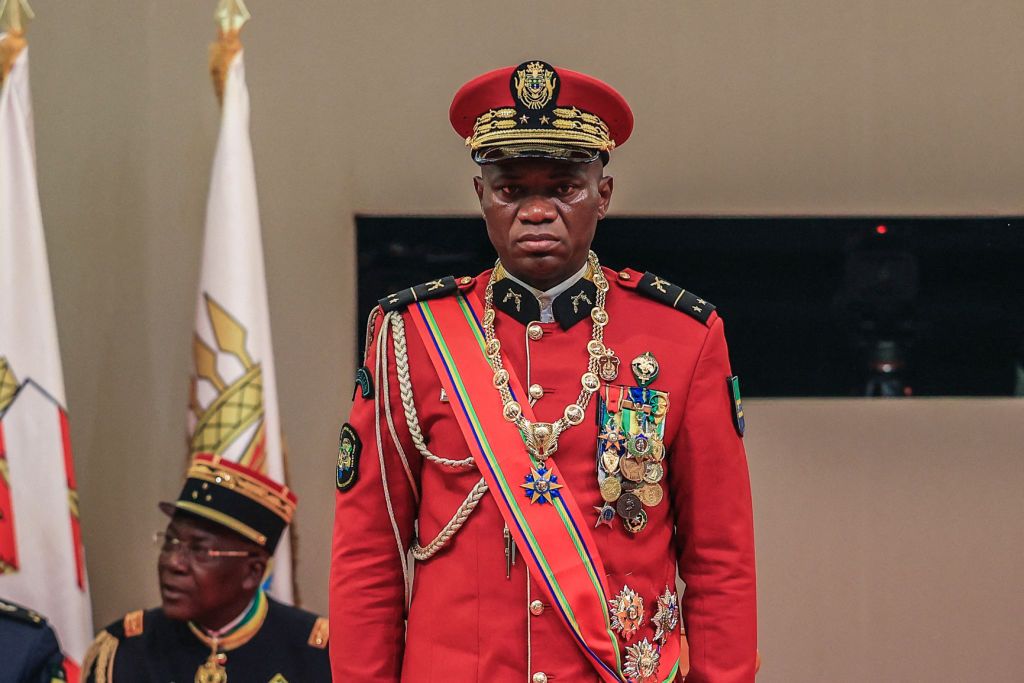
Leader of the Gabon junta, Gen. Nguema, wants to maintain power via democracy
General Brice Clotaire Oligui Nguema of Gabon has had difficulty adhering to both military and civilian procedure.
He once arrived at the presidential palace of his host country while on a foreign tour, with a weapon loosely fastened to his hip.
Another time, he sat down and shook hands with a visiting ambassador.
Perhaps bad manners. However, since taking over in a bloodless revolution on August 30 of last year, he has picked up political knowledge quickly.
The nation, the last on the continent to have a coup, is currently engaged in peace negotiations that should result in institutional and constitutional changes.
This nation in Central Africa is one of several on the continent ruled by the military, along with Chad, Mali, Burkina Faso, Guinea, and Niger. Everyone has been barred from AU activities, with the exception of Chad, for arranging unlawful power transfers.
The month-long peace negotiations, which were called by the junta commander himself and are being facilitated by Libreville’s Roman Catholic Archbishop, Monsignor Jean-Patrick Iba-Ba, started on April 2 and will last until April 30.
The dialogue’s organizers claim that it will open the door for a return to civilian control by creating a new constitution that will be put to a vote before the nation’s presidential elections take place the following year, on a date determined by the military chief.
The March 26, 1991, constitution, which established Gabon’s democratic rule, was suspended by the junta, which also disbanded all democratic institutions established by the same statute.
The debate, however, is perceived by former opposition members who oppose the military government as a plot to get Gen. Oligui Nguema ready for the next elections and strengthen his hold on power in this resource-rich nation known for its crude oil and lumber.
During the live broadcast of the discussions’ commencement on state television in Gabon, General Nguema pledged to return power to civilian authority following a two-year transition phase.
Nguema, a former commander of the Republican Guards, the nation’s elite military organization, was sworn in as interim president without delay after president Ali Bongo Ondimba, whose family had dominated the nation for more than 50 years, was overthrown in a coup.
Ali Bongo took the throne after his father, Omar Bongo, who ruled for over 42 years before passing away in 2009.
Ali Bongo had been proclaimed the victor of an election that would have allowed him to continue his 14-year rule and establish Gabon as a real family company at the time of the revolution.
All Categories
Recent Posts
Salah has the potential to repeat Premier League history
Mokwana creates history in Tunisia
Tags
+13162306000
zoneyetu@yahoo.com



